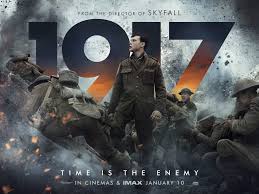
All Quiet on the Western Front is widely regarded as the the classic fictional portrayal of World War I. To that, I would also add the seminal anti-war comic strip Charley’s War written by Pat Mills, and on the non-fiction front, Peter Jackson’s outstanding documentary film They Shall Not Grow Old is a deeply moving window into life in the trenches.
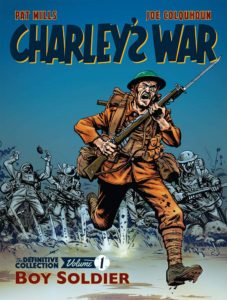
To that, we now have to add 1917, directed by Sam Mendes and inspired by tales told to him by his grandfather of life in World War I. “His stories were pretty anti-romantic and unsentimental,” Mendes told Tatiana Siegel of the Hollywood Reporter, “There was no heroism or bravery. They were all stories about luck or chance.” (1)
And so it is with 1917, which opened in general release this week and just knocked Star Wars: The Rise of Skywalker off the top spot at the box office. Deservedly so. 1917 is Oscar-worthy material. I wouldn’t call it an epic — this wasn’t made with a cast of thousands, simply 500 extras, but thanks to the unwavering focus upon its two leads, the film never feels small in scope.
At its heart, it is a simple story. With a Saving Private Ryan-esque conceit at its core (two soldiers are sent across No Man’s Land to prevent a British regiment walking into a trap) the heart of 1917 is the story of two British Tommies who are willing to walk through hell and high water in order to save the lives of 1600 comrades.
Much has been made of the director’s unique stylistic choice to make the entire film appear to be one continuous shot. Admittedly, I went into the movie theater thinking that this sounded like a gimmick; yet just a few minutes in, and it’s hard to deny that it works. Our leads, played by actors George MacKay and Dean-Charles Chapman, go through a living nightmare over the space of two hours, and we, the audience, go through it with them. The horrors of the Western Front are created in painstaking detail. One can practically feel the cold, mud, and damp.
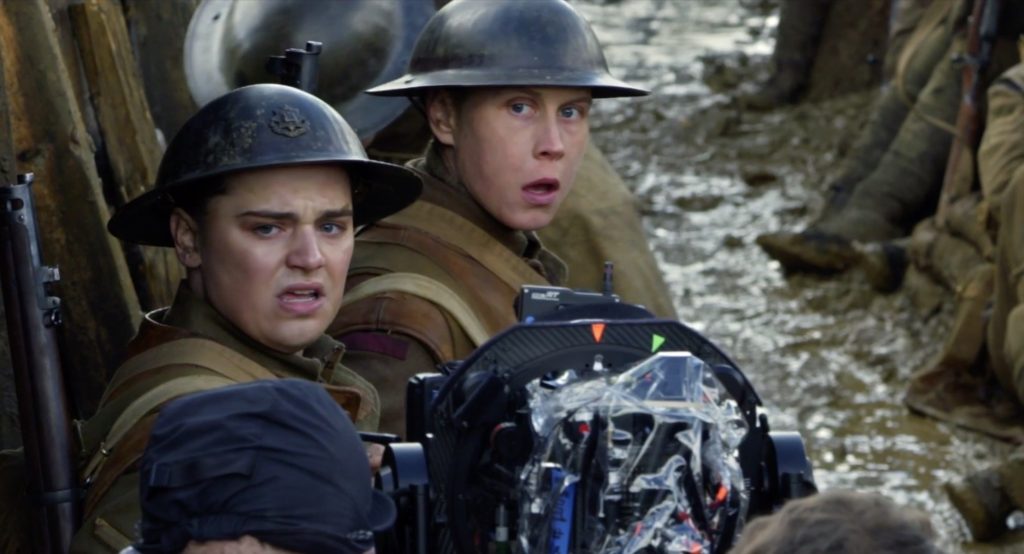
Mendes does not shy away from the macabre and brutal aspects of war; there are lots of dead bodies on screen, most in various stages of decomposition, and my wife, who is not usually upset by anything other than animal cruelty on-screen, had to look away several times because of the visceral nature of what was being depicted. Nor was she alone. Looking around at the audience, I saw that several others were similarly affected. Yet the effect never feels excessive or salacious. Rather, it seems like an honest attempt to depict the horrors of the battlefield. Showing a more sanitized depiction would have done the men (and animals) who suffered through it all a great disservice.
There is nowhere to hide with this movie. Unless you look away or step outside, you are going to be immersed in the Western Front for two hours. This is not for the squeamish, and has nothing to do with bravado or strength. War is cruel and terrible, and 1917 makes no bones about it.
This was the movie that I had hoped Dunkirk was going to be, and Christopher Nolan could do worse than to take notes. It doesn’t play around with time, nor does it need to make use of an annoying ticking clock on the soundtrack to help generate a sense of ever-present dread. The atmosphere is so tense, it is almost palpable.
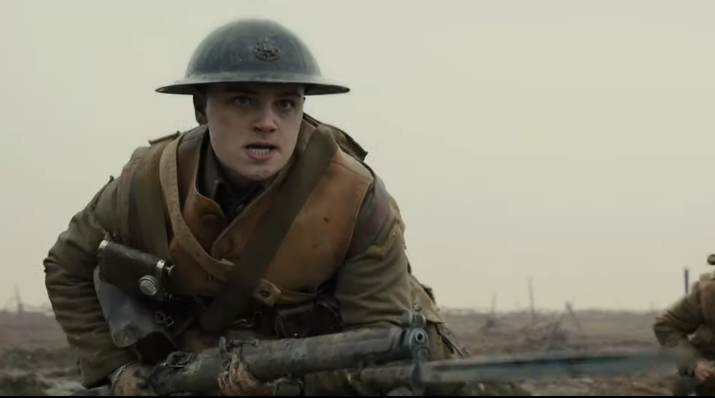
“That was an incredible movie, and one that I will never, ever see again,” my wife said as we left the movie theater. I know exactly what she means. For me, the crafting of this remarkable story means that I will pick it up on Blu-Ray and add it to my collection. This is story-telling at its finest.
In short, I cannot recommend 1917 enough, but please be sure of what you are letting yourself in for. It is an intense, harrowing, and moving cinematic experience — one that you will almost certainly never forget.
(1) https://www.hollywoodreporter.com/features/making-1917-how-sam-mendes-filmed-a-ticking-clock-thriller-1263469

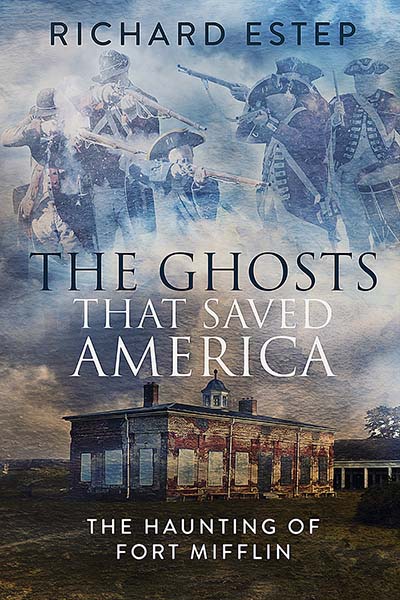
One Response
Good review. Wholly concur.